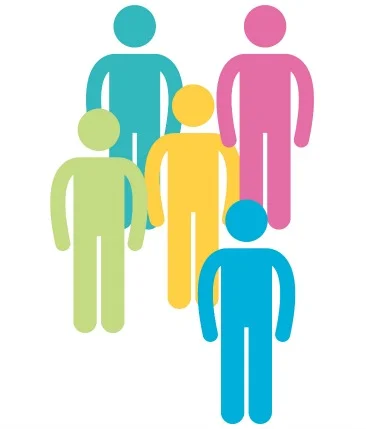How men and women can learn from each other in business
Gender Diversity in the boardroom is proven to positively impact corporate performance
Companies in the top quartile for gender diversity are 15 percent more likely to have financial returns above their respective national industry medians
In the United Kingdom, greater gender diversity on the senior-executive team corresponded to the highest performance uplift in the data set: for every 10 percent increase in gender diversity, EBIT rose by 3.5 percent
But there’s still a long way to go:
Women—accounting for an average of just 16 percent of the members of executive teams in the United States, 12 percent in the United Kingdom, and 6 percent in Brazil—remain underrepresented at the top of corporations globally
Why?
This research and the recent debates about how we progress more women into the boardroom got me thinking. I was recently asked to submit a proposal for a high potential leadership programme for women. The organisation is keen to develop talent programmes and strategies to assess, identify and develop women leaders. Having worked in a number of diverse organisations I have had the privilege of coaching many high potential women and men. As part of a coaching programme I assess the 16 dimensions of Emotional Intelligence as a way of helping to identify strengths and areas of development.
Emotional Intelligence and female leadership styles
“Women are often so busy achieving for everyone else that they don’t take time to consider their own career goals ”
There is a common theme amongst many of the women I coach in that they often have a higher regard for others than themselves. This often manifests in a desire to serve others brilliantly. What I have observed is this:
Most women have huge amounts of self awareness and awareness of others
They are able to attune and adapt their style of leadership to meet the demands of the senior exec teams, their teams and execute the strategy of the business
They will go to any lengths to ensure that they are driving the performance of the business with a strong focus on developing talent
The attitudes they hold about themselves are often more critical than the attitudes they hold about others – the sense of “I am not good enough to be here, I need to prove my worth” can drive them into burnout
They are often so busy achieving for everyone else that they don’t take time to consider their own career goals and needs and can lose sight of their ‘Personal Power’ and 'Balanced Outlook'
Now I apologise if this might sound like a very broad-brush synopsis, I am purely sharing general themes based on clients I have worked with over many years.
Emotional Intelligence and male leadership styles
I have also had the privilege of coaching many male execs and what I have observed is:
Men more so than women have a higher regard for themselves
They are emotionally resilient
They are goal directed in terms of their personal career vision and manage their careers well
They are often more assertive and handle conflict well
Develop Emotional Intelligence as a means to improving gender diversity and corporate performance
So as you can see there is a need to support both men and women in the workplace to develop different emotionally intelligent behaviours which will create an impact on gender diversity. It might sound very simple and I know that there are many other factors involved in this complex subject but I feel passionately that many organisations need to be looking at the issue on a deeper level in order to create transformational change.
From my own personal experience, the deeper focus needs to be in challenging both men and women on the attitudes that they hold about themselves and others. Having been a woman in leadership myself, I chose to step away from the boardroom to focus on a more balanced life for myself, and my family. I walked away from a company investment.
This was a well thought-through decision and I was keen to align my career goals to my personal goals. I did however continue my career but in a direction that I wanted to take it in. In order to do this I had to develop my personal power and be very clear about what I wanted and how I was going to achieve it. I believe that the more women can be clear and truthful about what they want, the more able they will be to progress to the boardroom. And that the more men can develop awareness of the needs of others and the benefits of others’ perspectives, the more gender diversity there will be at senior levels.
Controversial?
Perhaps, but I have seen a number of successful, highly emotionally intelligent women progress their careers. They have a high regard for themselves and others, are hugely self-aware, emotionally resilient and regulate their Emotional Intelligence and behaviours to achieve extraordinary performance. Only by focusing on developing these different dimensions of Emotional Intelligence and tailoring the development to individual leaders of both sexes, will we see real change.
Top tips to help organisations create greater gender diversity in the boardroom
Organisations should develop Emotional Intelligence in both men and women in order to support gender diversity.
Organisations or women who identify with my observations should focus on developing their Self Regard, Personal Power, Emotional Resilience and Conflict Handling.
Organisations or men who identify with my observations should focus on developing their awareness of self and others and the ability to connect with people.
Most importantly both men and women need to respect each others' attributes and learn to walk in each other’s shoes.
If you are interested in running any of these Emotional Intelligence leadership workshops, visit the Emotionally-i-Fit website or contact Amanda Wildman by email or on 07815 743045 .
Amanda Wildman - Emotionally-i-Fit
Amanda Wildman - Director of Emotionally-i-Fit is an expert in Emotional Intelligence and leadership development.
Emotionally-i-Fit runs assessments, coaching programmes, workshops and leadership retreats that help leaders and organisations to measure and develop the 16 metrics of Emotional Intelligence.



